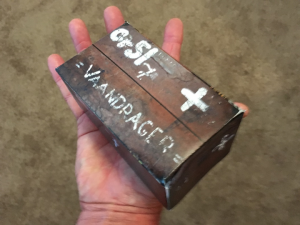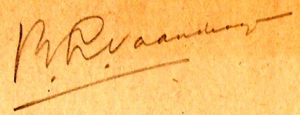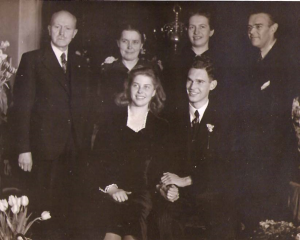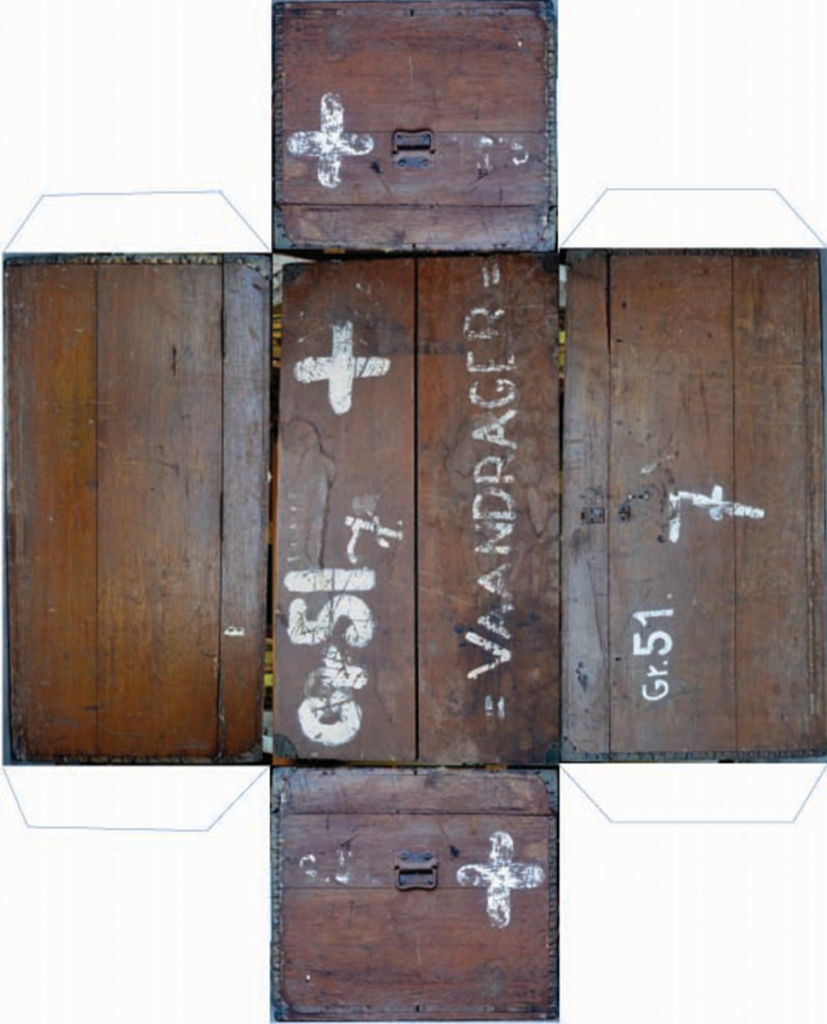- Bastiaan “Bart” Meijer Drees

My name is Bastiaan Meijer Drees. When my family immigrated to America, I was told on the boat across the Atlantic that people in Texas would be unable to pronounce my first name. They suggested that I go by the name “Bart” in honor of Bartrum Kelly, the Bell Helicopter pioneer who hired my Dad, Jan Meijer Drees. My last name is actually a double last name: Meijer Drees. My grandfather, Herman Meijer Drees, had to prove to the Nazi soldiers occupying Holland in World War II that our name had existed since the 1700s in order to “legally” keep it. However, when we immigrated, our family decided to use just Drees as our last name to avoid confusion about how to alphabetize it. Looking back, we should have hyphenated it (Meijer-Drees) to keep from losing our inherited surname.
In my family, my parents and the generations before them had a naming system for their children: the first boy was named after the father’s father; the first girl after the mother’s mother – the second boy after the mother’s father and so on. So, as the second son, I took my maternal grandfather’s name.
My mother’s parents who died before I was born were Bastiaan Leendert Vaandrager (1900-1948) and Froukje (Ebes) Vaandrager (1903-1947). They had three children: Jacoba “Jackie” (Vaandrager) Meijer Drees (1925-2016), Hendrik “Henk” Vaandrager (1927-1980), and Johan “Joop” Vaandrager (1928-2012). Joop and Henk were born in Indonesia (or the Dutch East Indies) where my mother’s parents hadmoved so that my grandfather could meet his obligations to the Dutch army for his loan to get his medical degree. Unfortunately, World War II broke out while my grandparents and their youngest son, Joop, were still there. The Japanese army occupied the country. By the end of the war, all three were in different Japanese prison camps and barely survived. (As a side note, my father spent time in a German work camp until he escaped – a story very similar to the movie, The Great Escape).
When the U.S. and Allies liberated Indonesia in 1946, my grandparents and Joop miraculously reunited. To get back to the Netherlands, they were issued one trunk (39.5 in. long, 24 in. wide and 20 in. tall) made of Indonesian teak. This trunk contained all of the possessions for Bastiaan and Froukje Vaandrager (See the attached cutout-fold-and-fasten model).


As a biologist, I am struck by the concept of adaptive radiation: “the process in which organisms diversify rapidly from an ancestral species into a multitude of new forms, particularly when a change in the environment makes new resources available, creates new challenges, or opens new environmental niches. Starting with a recent single ancestor, this process results in the speciation and phenotypic adaptation of an array of species exhibiting different morphological and physiological traits with which they can exploit a range of divergent environments” (https://en.wikipedia.org/wiki/Adaptive_radiation). Examples include Darwin’s finches and the lemurs of Madagascar.
Similarly, I am comforted by the fact that although Bastiaan and Froukje Vaandrager passed away soon after returning to Holland (1948 and 1947, respectively), their three children went on to produce 40 descendents to date (2016), each becoming a variety of individuals, parents and professionals in their own right – similar in a sense to adaptive radiation – after every Vaandrager immigrated to America! See the attached family “tree” (dendrograph) depicting genetic rather than paternalistic offspring using common names (Due to mitochondria receiving genetic material solely from the mother, females actually provide more DNA to their offspring!).
I also am fascinated by the inherited interests of the Vaandrager offspring as an example of nature versus nurture. Bastiaan L. Vaandrager had a great interest in orchids. His son, Joop, followed this interest throughout life and his oldest son, Henk, loved roses. My uncle Joop shared my interest in butterflies while growing up in Indonesia before the Japanese soldiers confiscated his collection. Froukje was an accomplished piano player and Bastiaan sang opera and classical tunes. Any musical talents their offspring had can certainly be attributed to those genes!
Even though (or maybe because) my Mom’s mother, father, and brother spent years in Japanese prison camps and my father, Jan Meijer Drees, spent time in a Nazi war camp, my brother, sister, and I were raised to be strictly unprejudiced regarding race or nationality. We were taught to judge each person or human being by his or her character. Similarly, this lack of prejudice never kept us from buying or owning Hondas, Toyotas and Volkswagons!
Looking back on my family’s heritage, I often have found strength from the stories of their struggles. No matter how difficult times may be in my life, I exist because Bastiaan and Froukje suffered much more than I ever have or will. During my 33 year career at Texas A&M University, 26 of those years were just wonderful. I had supervisors who provided positive feedback and rewards for my efforts as a professional entomology faculty member. However, for about 7 years (2004-2011), I had two despicable supervisors who were simply unqualified for their positions (one was later fired and one took another job thereafter). Their “power to judge” my performance (negatively) must have made them feel good – similar to the way I imagine the guards felt in World War II prison camps. This was a depressing time for me, but the stories passed down from my parents about their heritage and World War II experiences made me realize that I had the strength to persevere.
Bastiaan and Froukje died before any of their grandchildren and great grandchildren were born. I know we, as their descendants, carry their genes, their talents, and their strength which we use throughout our lives, and we will pass them on to our children and children’s children – even though their last names may no longer be Vaandrager. This trunk is a reminder about how lucky we were that they survived the war, returning to Holland with all of their possessions in this one trunk! Their lasting legacy being in the children.

